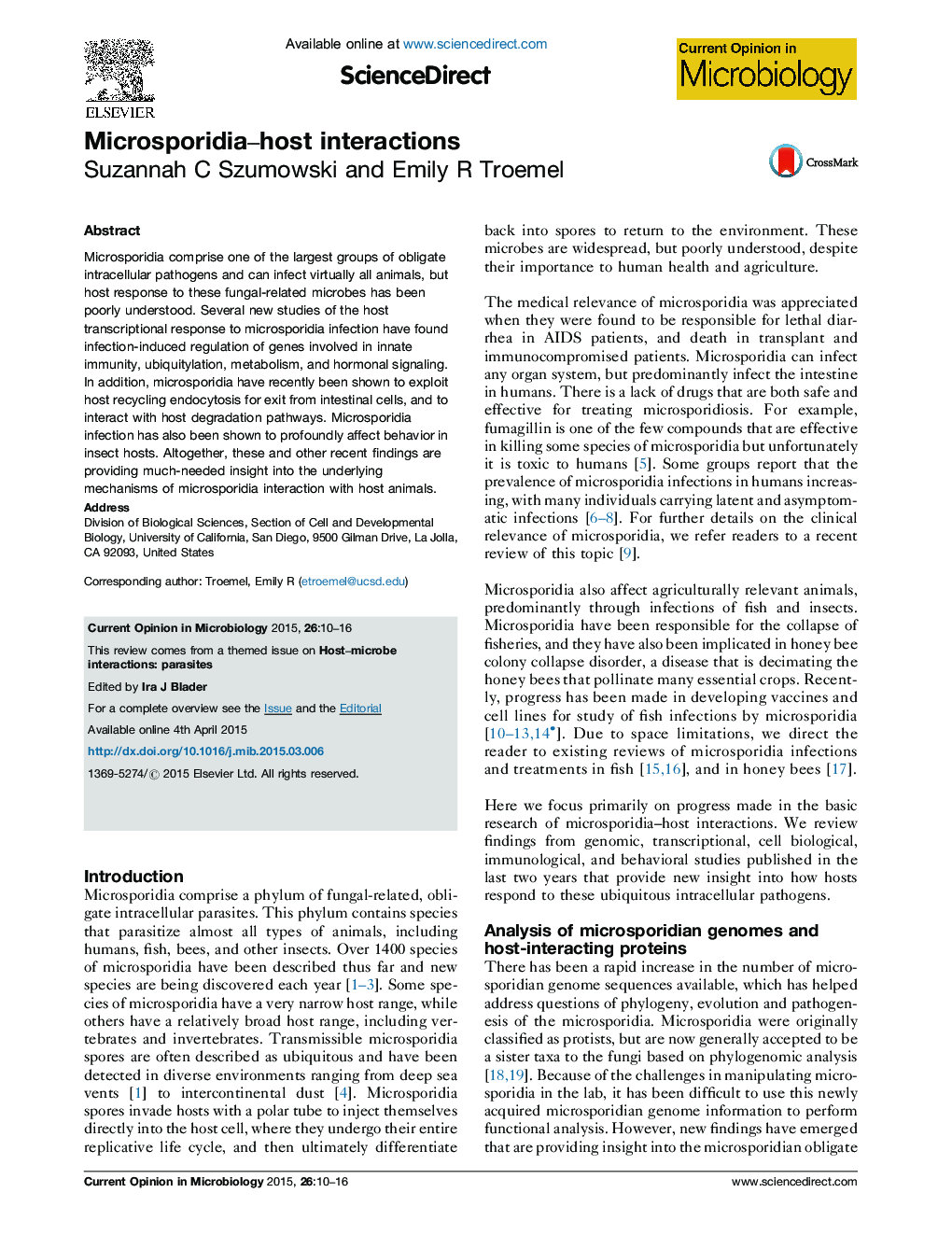| Article ID | Journal | Published Year | Pages | File Type |
|---|---|---|---|---|
| 3399028 | Current Opinion in Microbiology | 2015 | 7 Pages |
•Hexokinase and lectin-like proteins are candidate effectors secreted by microsporidia.•Microsporidia infection induces robust transcriptional changes in many host animals.•Host ubiquitin and autophagy machinery target microsporidia cells in nematodes.•Microsporidia exploit endocytic recycling of host nematode for directional exocytosis.•Microsporidia infection regulates honey bee homing and locust swarming behavior.
Microsporidia comprise one of the largest groups of obligate intracellular pathogens and can infect virtually all animals, but host response to these fungal-related microbes has been poorly understood. Several new studies of the host transcriptional response to microsporidia infection have found infection-induced regulation of genes involved in innate immunity, ubiquitylation, metabolism, and hormonal signaling. In addition, microsporidia have recently been shown to exploit host recycling endocytosis for exit from intestinal cells, and to interact with host degradation pathways. Microsporidia infection has also been shown to profoundly affect behavior in insect hosts. Altogether, these and other recent findings are providing much-needed insight into the underlying mechanisms of microsporidia interaction with host animals.
